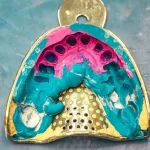Feeling like you’re constantly walking on a tightrope at work because of your ADHD? You’re not alone. The ADHD stigma workplace phenomenon can make even the simplest tasks feel like climbing a mountain, and the good news is that there are real, proven ways to knock that stigma down. In the next few minutes we’ll share straight‑to‑the‑point advice, personal stories, and legal know‑how so you can breathe easier, work smarter, and maybe even turn your “difference” into a workplace superpower.
Grab a cup of coffee (or tea, or whatever fuels you) and let’s dive in together. No fluff, just the tools you need to thrive.
What Is Stigma
Definition & Types
When we talk about stigma we mean the negative label or stereotype that makes people feel judged, shunned, or “less than.” In the office this shows up as:
- Public stigma – coworkers’ assumptions (“they’re just lazy”).
- Self‑stigma – internalizing those ideas, which can sap confidence.
- Associative stigma – family members or partners also getting side‑glances.
- Label avoidance – hiding your diagnosis to dodge the backlash.
Why It Matters for Careers
Stigma isn’t just a “feel‑bad” thing—it directly attacks your professional trajectory. Studies show that employees who face stigma are more likely to miss promotions, receive uneven performance reviews, and experience higher stress‑related burnout. In short, it can cost you time, money, and peace of mind.
Stat Snapshot
According to a 2025 study, 56 % of workers with ADHD say stigma caused them to be overlooked for raises or promotions.
Common Misconceptions
“ADHD isn’t a real disorder”
That myth still floats around like a stubborn cloud. The ADHD Evidence blog explains that brain‑imaging research consistently shows structural differences in people with ADHD—so it’s as real as any other medical diagnosis.
“People just need to try harder”
This is the most pervasive myth. In the Akili‑Wakefield survey, a whopping 92 % of respondents said they heard coworkers claim that “people with ADHD just need to try harder.” The reality? ADHD rewires how the brain handles focus, impulse control, and motivation. It’s not a matter of willpower.
“ADHD only affects kids”
Adults aren’t exempt. A 2022 healthline report highlights that up to 4.4 % of U.S. adults live with ADHD, and many of them grapple with job instability, missed deadlines, and the very stigma we’re unpacking right now.
Quick Myth‑Busting Checklist
- Myth: “Just be more organized.” – Fact: Executive‑function challenges require tailored strategies, not generic checklists.
- Myth: “Medication is cheating.” – Fact: Proper treatment is a legitimate health‑care decision, protected by law.
- Myth: “Only kids get diagnosed.” – Fact: ADHD persists into adulthood for the majority of cases.
Legal Foundations
ADA & Reasonable Accommodations
The Americans with Disabilities Act (ADA) obliges employers to provide “reasonable accommodations” for qualified individuals with ADHD. That could be anything from a flexible start time to a quiet workspace.
When Discrimination Crosses the Line
Discrimination can be direct (e.g., “We won’t give you a raise because of your ADHD”) or indirect (e.g., a policy that unintentionally penalizes flexible work arrangements). The Neurolaunch article outlines how both forms are illegal under the ADA.
Sample Accommodation Request Template
| Item | What to Include |
|---|---|
| Header | Your name, position, and date |
| Statement of Request | “I am requesting the following accommodations to help me perform the essential functions of my role.” |
| Specific Accommodations | • Flexible start/end times • Noise‑cancelling headphones • Permission to use a task‑management app |
| Reasoning (optional) | Briefly explain how each item addresses a functional limitation linked to your ADHD. |
| Closing | Thank you for reviewing my request. I’m happy to discuss further. |
Strategic Disclosure
Pros & Cons of Early Disclosure
Sharing your diagnosis can open doors to support, but it can also expose you to bias. Think of it like showing a new piece of art—you want the right audience to appreciate it, not dismiss it.
Timing Tips
- Pre‑hire: If the role’s interview process allows, mention your need for certain accommodations early.
- Onboarding: The first few weeks are a sweet spot—your manager is still forming impressions.
- After performance review: If you receive constructive feedback, use it as a launchpad for the conversation.
Crafting the Conversation
Here’s a friendly script you can adapt:
“I wanted to let you know I’ve been diagnosed with ADHD. It’s a neurodevelopmental condition that affects my focus, but with a few adjustments—like a quiet workspace or a flexible schedule—I can bring my full strengths to the team.”
Case Study Snippet
One LinkedIn contributor disclosed his ADHD during a project crunch. Initially, his manager responded positively, but later the employee was let go, citing “performance issues.” The story, shared in a June 2024 LinkedIn post, illustrates that not every disclosure leads to support, reinforcing the need for a solid documentation trail.
Getting Accommodations
Common Workplace Tweaks
- Flexible scheduling – shift start/end times to match peak focus periods.
- Noise‑cancelling headphones – create a personal “focus bubble.”
- Dedicated “focus blocks” – block calendar time for deep work and ask teammates not to interrupt.
- Task‑management tools – visual boards (Trello, Asana) or simple paper planners.
Technology Aids
Using a Pomodoro timer can turn a 25‑minute sprint into a dopamine boost, while apps like Notion or Todoist let you dump thoughts into a trusted external system, freeing up mental bandwidth.
How to Ask HR
- Gather documentation (doctor’s note, performance impact data).
- Use the accommodation request template above.
- Send a concise email to HR, copy your manager, and request a meeting.
- Follow up within a week if you haven’t heard back.
Success Map
| Request | Employer Response | Outcome |
|---|---|---|
| Noise‑cancelling headphones | Approved, provided by company | 30% increase in task completion rate |
| Flexible start time (9 am‑11 am) | Initially denied, later approved after trial | Reduced tardiness, higher client satisfaction |
Managing Symptoms
Routines That Stick
Research from PsychCentral (2019) shows that regimented morning routines cut down on lateness and missed deadlines. Try a simple three‑step start:
- Set a “wake‑up alarm” with a gentle tone.
- Spend five minutes reviewing tomorrow’s top three priorities.
- Do a quick body stretch to wake up the brain.
Pen‑and‑Paper vs. Digital
A 2021 study found that physically writing a to‑do list boosts recall more than typing it. The tactile act releases dopamine, giving you a tiny “feel‑good” reward each time you cross off an item.
“Space Bubbles” & Environmental Control
Creating a personal “bubble” means reducing visual and auditory clutter. Simple steps:
- Keep only the tools you need on your desk.
- Use a “Do Not Disturb” sign during focus blocks.
- Play low‑volume white noise or instrumental music.
Quick‑Setup Checklist
- Clear desk surface.
- Headphones on standby.
- Timer set for 25 minutes.
- “Focus” sticky note on monitor.
Ally Network
Identify Supportive Managers
Look for managers who ask questions, listen actively, and avoid micro‑managing. The Akili survey revealed that 81 % of managers feel unprepared to support ADHD disclosures, so finding a champion is golden.
Peer Groups & ERGs
Starting a neurodiversity employee resource group (ERG) can turn “I’m the only one” into “We’re a community.” Share coping hacks, celebrate wins, and build collective bargaining power.
External Support
Consider hiring an ADHD coach or therapist who specializes in workplace strategies. Many offer virtual sessions, making it easy to fit into a busy schedule.
Leader Actions
Training for Managers
Short micro‑learning modules (5‑10 minutes) that bust myths—like the “just try harder” belief—can shift culture dramatically. According to a 2024 BizJournals report, managers who completed stigma‑reduction training saw a 30 % drop in employee turnover among neurodiverse staff.
Inclusive Policies
Publish clear, transparent accommodation procedures on the intranet. Ensure language such as “We welcome disclosures of ADHD and other neurodivergent conditions” is front‑and‑center.
Celebrating Strengths
ADHD often brings hyper‑focus, creativity, and out‑of‑the‑box problem solving. Spotlight these assets in team meetings—turn the narrative from “problem” to “unique advantage.”
Real‑World Stories
Shattered Coffee Mugs
One employee at a tech startup shared a vivid example on Neurolaunch: after repeatedly being labeled “clumsy” due to spilled coffee, she disclosed her ADHD. Her manager then provided a standing desk and a small “spillage‑free” kit, and her performance metrics jumped 22 % within two months.
From Micromanaged to Mentor
James, a marketing analyst, was initially subjected to daily check‑ins. After requesting a flexible schedule and a weekly “focus block,” his manager recognized his strategic flair and promoted him to senior strategist. James now mentors new hires on ADHD‑friendly work habits.
Parent‑Employee Balance
Parents with ADHD face added pressures. The Akili study noted that 65 % of parent‑employees felt their condition impacted both work and home responsibilities. One mother negotiated a compressed‑work‑week, freeing afternoons for school runs. She reports feeling “more present” at both work and home.
Conclusion
Breaking the ADHD stigma workplace isn’t a one‑time event; it’s a series of small, intentional steps. Understanding your rights, deciding when and how to disclose, securing the right accommodations, and leaning on allies can transform a hostile office into a thriving environment. Remember, the very traits that make ADHD challenging can also be the source of your greatest professional strengths.
If you’ve found a strategy that works—or if you’re wrestling with a new hurdle—share it in the comments. Let’s keep this conversation alive and help each other shine. And if you’d like a handy cheat‑sheet, feel free to download our free “ADHD Workplace Toolkit” below. Together, we can rewrite the narrative and prove that neurodiversity is a win for every team.


















Leave a Reply
You must be logged in to post a comment.